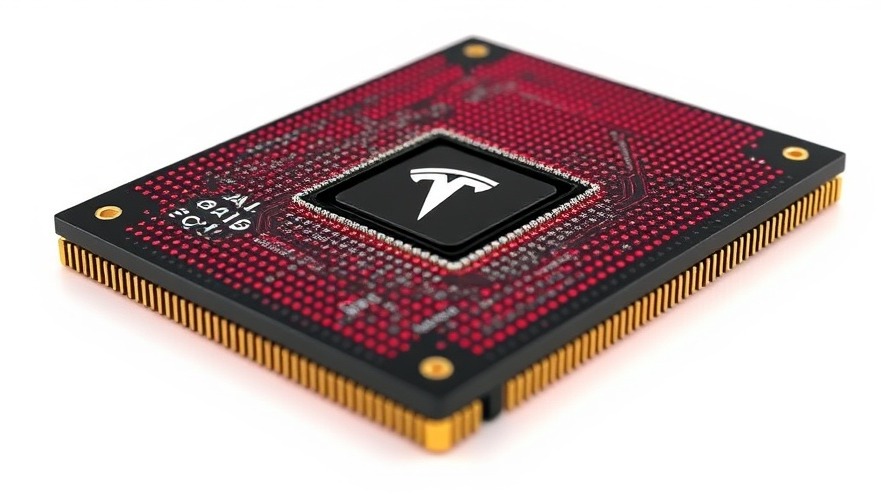
Revolutionizing AI: Tesla and Samsung's Strategic Partnership
In a groundbreaking move that showcases the intersection of technology and electric vehicles, Samsung Electronics has secured a monumental USD 16.5 billion deal to manufacture Tesla's next-generation AI chips, named the AI6. This deal not only highlights the growing demand for advanced semiconductor technology but also signifies an essential pivot for both companies in the highly competitive tech landscape.
The Significance of Tesla's AI Chips
Tesla is renowned for its ambitious ventures into AI to enhance their electric vehicle technology. Elon Musk emphasized the importance of this strategic partnership through his recent post on X (formerly Twitter), stating that Samsung's new chip plant in Taylor, Texas, will be pivotal for the mass production of these chips. The AI6 chips are designed to bolster Tesla's self-driving features, which are at the forefront of their innovation strategy.
Impact on Samsung's Foundry Business
This collaboration comes at a crucial time for Samsung, which has faced significant challenges in its foundry division. Reports indicate that the foundry and logic chip operations have struggled with losses amounting to approximately 2 trillion won. With the Tesla contract running through 2033, analysts perceive it as a crucial vote of confidence in Samsung's manufacturing capabilities, potentially paving the way for future contracts from other tech giants.
Economic Implications for Both Companies
The enormity of this contract cannot be understated, as it constitutes around 7.6% of Samsung's projected revenue for 2024. Moreover, experts suggest that Musk’s comment about the deal being “just the bare minimum” indicates the possibility of an even larger economic impact in the months to come. Such a financial injection could significantly bolster Samsung's stock, which recently rose by 6.83%, surpassing the 70,000 won mark for the first time in nearly a year.
Challenging the Status Quo in the Semiconductor Industry
Despite Samsung’s advancements, it still trails behind TSMC, which commands an impressive 67.6% of the global foundry market. However, this deal marks a turning point, with analysts arguing that it could enhance Samsung's position in the semiconductor landscape. Lee Jong-hwan, a professor in system semiconductor engineering, stated that winning such a crucial order suggests a strong trust in Samsung's technology, which could attract additional high-profile clients.
What Lies Ahead?
With production set to ramp up in the second half of 2026, the future looks promising for both Samsung and Tesla. If this partnership thrives as anticipated, it could reshape the industry dynamics and influence how semiconductor manufacturing aligns with the evolving electric vehicle market. Additionally, industry insiders are watching closely to see if Samsung will implement maneuvers to improve its production processes, potentially introducing their state-of-the-art 2-nanometer process technology.
A Call to Action: Stay Informed
The technological and economic shifts stemming from this groundbreaking partnership are essential to understand as they may significantly influence both the tech and automotive landscapes. For those interested in the future of AI, electric vehicles, and global semiconductor markets, it is critical to stay engaged with ongoing developments in this dynamic sector. Understanding these changes could provide valuable insights into investment opportunities and the evolution of our technological landscape.
This historic partnership between Tesla and Samsung marks a pivotal shift in the industry, one that has the potential to redefine standards in technology and manufacturing for years to come.
 Add Element
Add Element  Add Row
Add Row 



Write A Comment